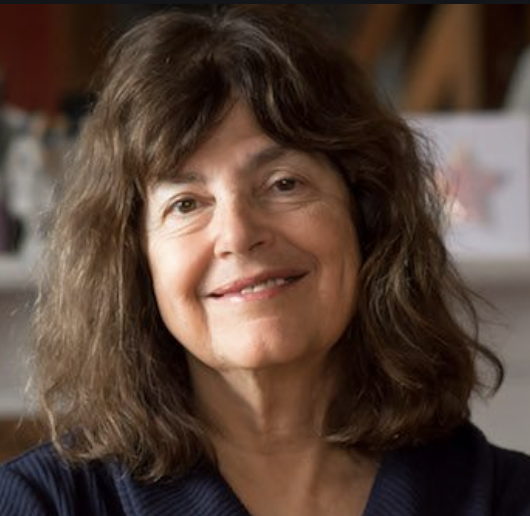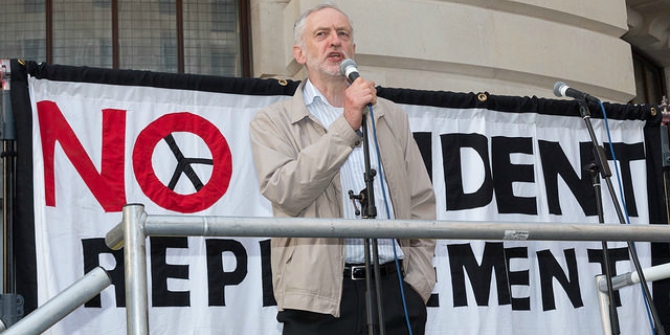 Mary Kaldor discusses what is behind Russia’s foreign policy decisions over Ukraine and how the West may respond. She writes that while strengthening Ukrainian defensive capacities is important, and so is reducing energy dependence on Russia, what is ultimately needed is a rethinking of Europe’s security arrangements.
Mary Kaldor discusses what is behind Russia’s foreign policy decisions over Ukraine and how the West may respond. She writes that while strengthening Ukrainian defensive capacities is important, and so is reducing energy dependence on Russia, what is ultimately needed is a rethinking of Europe’s security arrangements.
Russia is amassing troops in Belarus and Russia along the border with Ukraine. A conventional invasion seems possible, perhaps even imminent, especially as these types of manoeuvres often acquire a momentum of their own. Up to now, conventional war has not been Putin’s style. The Russians have previously talked about a ‘new type of warfare’ or ‘non-linear war’, which involves special forces, local militias, and what they call ‘political technology’ – for example, cyber warfare or social media disinformation campaigns. What is more, Ukraine has thousands of troops prepared for resistance, so any war is likely to be bloody and prolonged. So, what are the Russians up to?
One school of thought takes Putin at his word and views these latest actions as a response to the expansion of NATO, the encirclement of Russia by Western troops and missile systems, and the possibility that Ukraine and Georgia might join NATO. The opposite school of thought asserts that Russia is a revisionist power seeking to protect a sphere of influence comprised of autocratic regimes, within the former Soviet-aligned Eastern bloc.
My argument, in contrast, is that Russia’s behaviour has everything to do with the nature of political and economic regime and Putin’s preoccupation with staying in power. The Russian regime is typical of a contemporary phenomenon that involves a mixture of crony capitalism, authoritarianism and ethnic nationalism – a mixture that can be found, albeit in very different forms, in Assad’s Syria, Modi’s India, Bolsonaro’s Brazil, Hungary and Poland, or the Brexit and Trump tendencies in the UK and US.
A major concern of such regimes is the fear that democracies abroad might offer an example to emulate while division, disruption, and polarisation abroad helps to shore up a legitimating narrative. In the case of Ukraine, where Russia’s oligarchs are deeply entwined with Ukraine’s oligarchs, there is considerable fear of the transparency and anti-corruption measures that democratic reform might bring. It was Russian intervention to prevent Ukraine signing an EU Association Agreement in 2013, which would have involved new rules around corruption, that led to the Maidan protests and subsequently to Russian support for separatists in the East as well as the annexation of Crimea. The consequence has been a destabilising protracted conflict that has slowed down reform in Ukraine. The recent support for Belarus’s actions in pushing migrants to the Polish border can be seen both as an attempt to expose the hypocrisy of the EU’s support for democracy and rights and as a way of maintaining an ongoing tension that serves both regimes well domestically.
To what extent can it be argued that NATO expansion contributed to Putin’s paranoia? Undoubtedly, NATO expansion was a mistake. At the end of the Cold War, there were high hopes for demilitarisation of Europe. The Warsaw Pact – the military alliance of Eastern bloc countries – was dissolved. Yet, NATO continued its existence and, indeed, expanded, partly in response to requests by newly democratised Central and Eastern European states, but also reflecting pressures from what used to be called the military-industrial complex to sustain declining demand for military investment. Nevertheless, NATO expansion is a pretext for Putin. Even without NATO expansion, the Russian regime, as currently constituted, would have found some other excuse for its aggressive behaviour, although it might have proved more difficult.
Where the West does bear some responsibility is in the economic policy it pursued after the end of the Cold War. Although, of course, as someone who was following closely what happened at the time, I am well aware that this was welcomed by the new post-Communist regimes. This was the high point of market fundamentalism. Neoliberal strategies of public expenditure cuts, trade liberalisation, and privatisation did not produce the form of bourgeois capitalism that liberal democrats had hoped for. Rather, in most cases, and especially in Russia, it resulted in a criminalised kleptocratic autocracy. Privatisation turned communist bureaucrats into oligarchs, while cuts in public services and trade liberalisation produced unemployment and extreme inequality.
So, what should be done now? Strengthening Ukrainian defensive capacities is important, as is economic support to Ukraine to underpin public resistance. Dealing with Russian dark money in the West (especially here in London) and reducing energy dependence on Russia, including cancelling the new gas pipeline Nordstream 2, would also be positive measures, which reflect the goals of economic reform and social justice as well as our climate change obligations. Intensive diplomacy even if no agreement is forthcoming also plays for time. It is not evident that the sanctions under discussion (such as SWIFT sanctions, which would exclude Russia from the dollar-led banking system) will help. In most other cases, (e.g., Venezuela, Iran, or Syria), these types of sanctions tend to hurt ordinary people more than elites and provide a convenient scapegoat for the regime. But what is missing so far from Western responses is an emphasis on human rights. If aggressive behaviour abroad is linked to repressive and predatory behaviour at home, then human rights must be central.
Russia is a member of both the Council of Europe and the Organisation for Security and Co-operation in Europe, where members are committed to the observance of human rights. These organisation should be given a much more prominent role in the discussions around the crisis. Russia should be called to account for human rights violations as should other dominant powers. There is a need to draw public attention to human rights violations, to raise issues of legality, to impose targeted sanctions on individuals responsible for violations human rights, and to find ways to protect and strengthen civic spaces across borders. In the end, the only way to stop Putin is anti-war pressure inside Russia but this is only possible if the possibilities for human rights activities are no longer squeezed. In the Donbass and Crimea, for example, Russia claims to be protecting the human rights of Russian speakers there. Surely, the international community should demand that Russia respects all human rights in those places where Ukrainian speakers or the Tartar community have really suffered and where property has been arbitrarily confiscated.
Above all, what is needed is a rethinking of Europe’s security arrangements along the lines of the Helsinki Accords of 1975 rather than along the lines of classic geo-political alliances like NATO. The Helsinki Accords were composed of three baskets. The first component was the prevention of war – the need for acceptance of the territorial status quo, defensive postures as well as arms control, and confidence-building measures. All of these could be proposed to-day. The second component was economic, social, cultural, and environmental co-operation. Today, there is an urgent need to co-operate on global planetary dangers like climate change or pandemics. And the third component was human rights. In such a rethinking, it might be possible to adapt NATO as the military arm of a pan-European security arrangement, dismantling offensive capabilities, strengthening purely defensive postures, and helping to dampen down conflicts. This would create a framework so that, if and when a democracy movement develops inside Russia, it could be invited to join as well.
___________________
Mary Kaldor is Professor of Global Governance and Director of the Conflict and Civil Society Research Unit in the LSE Department of International Development.
Photo by Vika Strawberrika on Unsplash.






3 Comments